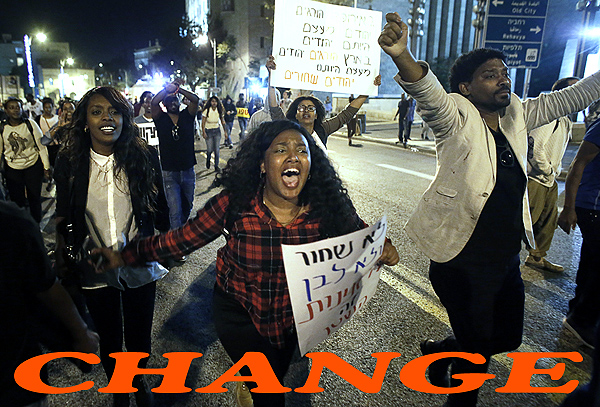 Ethiopia is on the brink of becoming democratic for the first time in its 3000-year history. This very dangerous moment in one of Africa’s most reclusive countries reflects the aftermath of destructive nationalism and populism, something most of the world is still mired in.
Ethiopia is on the brink of becoming democratic for the first time in its 3000-year history. This very dangerous moment in one of Africa’s most reclusive countries reflects the aftermath of destructive nationalism and populism, something most of the world is still mired in.
In that sense Ethiopia is ahead of the game and could shed some light on what will happen to the rest of us once our era of populism ends.
It’s a Robespierrian fact that out of destruction both good and evil share the same potential. That’s the worry of many Ethiopian scholars. The indicators that the country will soon be among the freest and most liberal in Africa are just as robust as the indicators that it will fall back into the brutal annihilism of its recent past.
I was one of the few Americans allowed into Addis Ababa after the Red Terror in 1977. It was 1979. I remember waking up in my Hilton Hotel bedroom on the 8th floor, opening my drapes to the African morning and gazing on dismembered heads spiked onto the poles at the front of the hotel that usually carried national flags.
Ethiopia is the only country in Africa never colonized. It has the oldest civilization with recorded documents that take its history back to the 3rd century BC. Its oral history goes back another millennia. It has an incredibly unique language, its own musical scale, and today the highest GDP in Africa (10½%), 50% higher than China’s.
In the last decade it has become the darling of foreign donors because of its expansive development. Its urban populations are among the most educated on the continent. Its large, educated Army is the most effective on the continent after South Africa’s. Light speed rail whisks commuters around the capital, and soon it will control The Nile with the continent’s largest hydroelectric dam.
There is little that Ethiopia doesn’t excel in. Except human rights… and that may now be radically changing.
Ever since the Red Terror, which its scholars compare to the Soviet Union’s Stalin era, the country has been governed by strict communism:
“A far-left, command economic model, with the state at the centre. This has morphed into a developmental-state narrative, but still one in which there is little space for the private sector,” according to Greg Mills of South Africa’s Brenthurst.
Banks, mines, major industries, health care, education – everything is state run. There’s no stock exchange. There’s no Federal Reserve or High Court. The Party controls everything.
Party loyalists are now congratulating themselves. It’s taken nearly a half century but strict adherence to communist ideology, they argue, created Africa’s most promising country.
What party loyalists failed to realize was that prosperity foments democracy.
Prosperity brings more cell phones into the hands of remote peoples. Information moves around more quickly. Decisions are canonized. To the extent truth is determinable, deceit and obfuscation grow difficult.
Prosperity lowers infant mortality. Today half of Ethiopia’s 105 million people are under 30 years old, Africa’s youngest country. This is because prosperity came so quickly that from one generation to the next infant mortality was quartered.
By 2014 Ethiopia had become one of Africa’s most prosperous countries, its youngest and among its most educated. In 2014 massive protests erupted throughout the country, even in its furthest most remote regions.
Thousands were slaughtered by the Army and police. The protests continued until the regime fell in February.
The new prime minister is 41 years old.
“I work seven days a week for $300 a month,” Prime Minister Abiy Ahmed Ali told Greg Mills. “I am not getting rich, but I am not corrupted…But I am interested in making change.”
The change he most wants is democracy. Pointedly, the prime minister that he replaced, Hailemariam Desalegn, also told Mills “Democracy is an existential issue for Ethiopia. There is no option but multi-partyism.”
But elections have yet to be announced. The troops are getting restless.
“The country is … in chaos,” writes Ezekiel Gebissa, Professor of History and African Studies at Kettering University in Flint, Michigan.
“The murder, mayhem and dislocation of people that have been perpetrated in the eastern, southeastern and southern regions of the country have now spread to western Ethiopia…Nearly two hundred thousand have been displaced from Benishangul…
“Faced with insecurity,” cautions Gebissa, “people who would otherwise be enthusiastic supporters of change harken to the security provided by the iron-fisted rule of the old regime.”
Stay tuned.